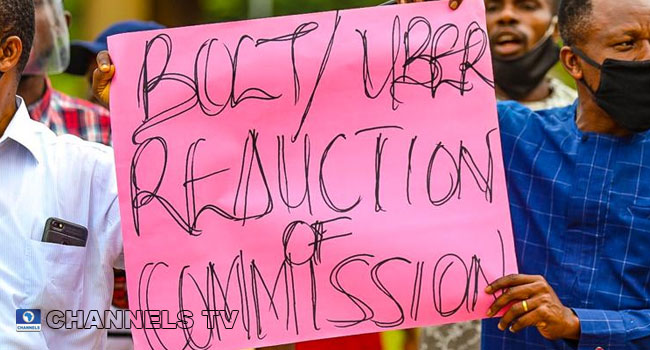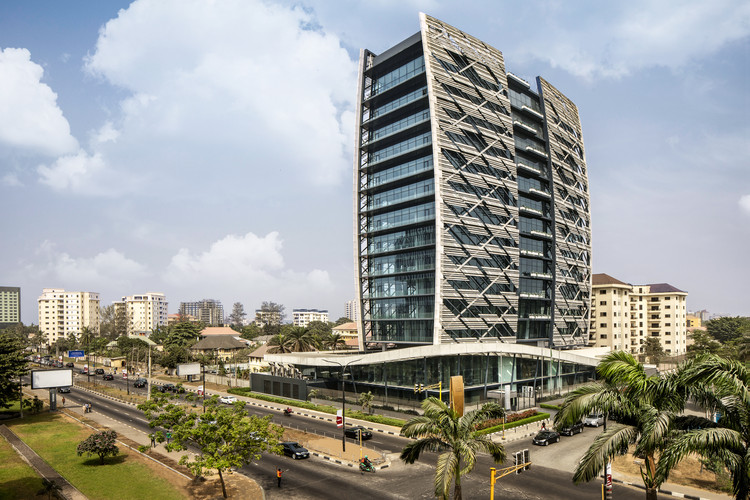Ride-hailing giants Uber and Bolt are fighting their unionised drivers over how the latter have chosen to christen their union.
In January, ride-hailing drivers applied to Nigeria’s Ministry of Labour to register the Amalgamated Union of App-Based Transport Workers Of Nigeria (AUATWON) as the official drivers union. Under existing rules, a trade union can only get its certificate of registration if there is no objection to its creation from any third party, within 90 days.
But within weeks of AUATWON’s application, ride-hailing companies Bolt and Uber reportedly objected to the registration of the union. One of the grounds for their objection was the union’s name and how it designates the drivers as “workers” for the ride-hailing platforms.
For years, ride-hailing companies have continued to insist that the drivers on their platforms are not their workers but independent contractors. A driver close to the situation told TechCabal, “The ride-hailing companies said they don’t want ‘workers’ in our name; they want ‘drivers’.”
The distinction is important because if the drivers are acknowledged as workers, the ride-hailing companies could have obligations to them, such as providing health insurance, leave allowance, stipulation for time off, etc. In December 2018, some drivers filed a suit asking the industrial court to rule on the question of whether they are workers or independent contractors.
A case at the appeal court is yet to be determined.
Registrar of Trade Unions, Falonipe Amos, summoned the drivers to a closed-door meeting in Abuja on June 26, to resolve these objections, in a bid to move their application forward.
A source told TechCabal that the drivers disagreed with the objections raised by Bolt and Uber in the closed-door meeting, stating that their names have been strategically picked to form a body fronting their interests. “The union has invested so much into building the name as a brand and we cannot, at this time, adopt any other after waiting for over seven years before this approval,” the source stated.
Long ride to freedom
The journey to recognition for AUATWON has been long and marked with pushback. In April, TechCabal reported that the union threatened a protest in response to Bolt and Uber’s move to revoke the licences of the drivers. In May, Technext reported that AUATWON had accused Bolt and Uber of trying to “sponsor division within the union”. Some sources close to the union claimed this pushback derailed their goals to effectively register the union.
The union’s general secretary, Ibrahim Ayoade, told TechCabal that the companies have to accept the union as permanent. “Our certificate (of registration) will come out soon and there is nothing they can do. They are afraid of the union. That is why they are taking those actions they took,” he said on a phone call.
A source privy to the union’s discussions with the Ministry of Labour early this week said the recognition of the union will allow them cater to challenges peculiar to their industry. The feeling within the union is that ride-hailing companies have long scuttled their attempts at collective bargaining and are displeased with the decision of the drivers to unionise. The recognition of the union is important because, for years, the drivers have asked for a seat at the table during decision-making. There are several outstanding issues the drivers want a say on, like the commission the companies charge and clearer terms before drivers are kicked off platforms.
In a statement, the country manager for Uber in Nigeria, Tope Akinwumi, told TechCabal that drivers are at the heart of everything they do, hence the increase of fares on June 3 and 9 on the app to reflect existing economic conditions. “We support the freedom of drivers in Nigeria and the rest of the world to organise, including by forming and joining unions and associations. As one of the largest sources of platform work in the world, Uber is committed to working with policymakers, social representatives and the industry to improve the quality of platform work. Uber remains ready and willing to engage with drivers towards improving the quality of independent work,” the statement read in part.
A spokesperson for Bolt hasn’t responded to inquiries at the time of filing this report.
Another source said that if their successful meeting at the labour ministry on June 26 doesn’t resolve the problem, then the court of law will decide for everyone in the sector. “We are still on top of the matter, and we are still looking at it. It could result in a court action,” the source said.
Ayoade stated that more negotiations will follow after the Muslim festivities, which ended on Thursday.






















